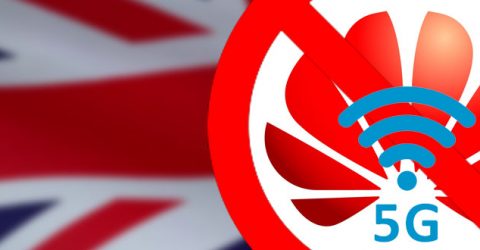Political fallout gathers pace after leaked Huawei 5G decision

Following the ‘leaked’ decision by the government’s National Security Council (NSC) to allow Huawei equipment to be used in Britain’s non-core 5G networks, the political fallout gathered pace when the US threatened to withdraw intelligence sharing.
On Monday Robert Strayer, deputy assistant secretary at the US State Department told the press that as far as the US was concerned there was no difference between core and non-core networks and threatened to withdraw intelligence sharing between the US and Britain, unless the government changes its mind.
It is the United States position that putting Huawei or any untrustworthy vendor in any part of the 5G telecommunications network is a risk. If other countries insert and allow untrusted vendors to build out and become the vendors for their 5G network, we will have to reassess the ability for us to share information and be connected with them in the ways that we are today.
Last week the NSC gave the green light for Huawei equipment to be used in the UK’s non-core 5G networks. Details of the Council’s decision were promptly leaked to the media and caused a political storm.
Accusing fingers were quickly pointed at certain members of the NSC who opposed the decision, including current ministers, and who may or may not be considering challenging Theresa May the Prime Minister.
America quickly denounced the decision and called on it allies in the ‘Five Eyes’ intelligence grouping to exclude the company. So far, ‘Five Eyes’ members Australia and New Zealand have complied. Canada has yet to decide.
Huawei itself was quick to respond to the US threats and opposition to their company, using an editorial in the Global Times to make their point.
The decision to involve Huawei in 5G is more likely a matter of loyalty to the US. Washington demand that all its allies suppress Huawei. Some contend these diplomatic considerations should dominate the UK’s final decision.
Such unprecedented leaks reflect the ability of the US to intervene in UK affairs. Washington can infiltrate the UK’s most confidential meeting and leak the information to the press in order to trigger immediate resistance from the opposition.
Observers of the controversy consider the idea that the US was behind the leak to be a little outlandish. But it would certainly be in their interest to use the details of the NSC meeting to pressurise the UK government to reverse that decision.
Meanwhile the UK’s decision is in line with a Europe-wide ruling to allow Huawei equipment into next-generation 5G networks as long as the Chinese tech giant follows market rules. Recently both EC President Jean-Claude Juncker and German Chancellor Angela Merkel made it clear they would not approve a ban against Huawei.






